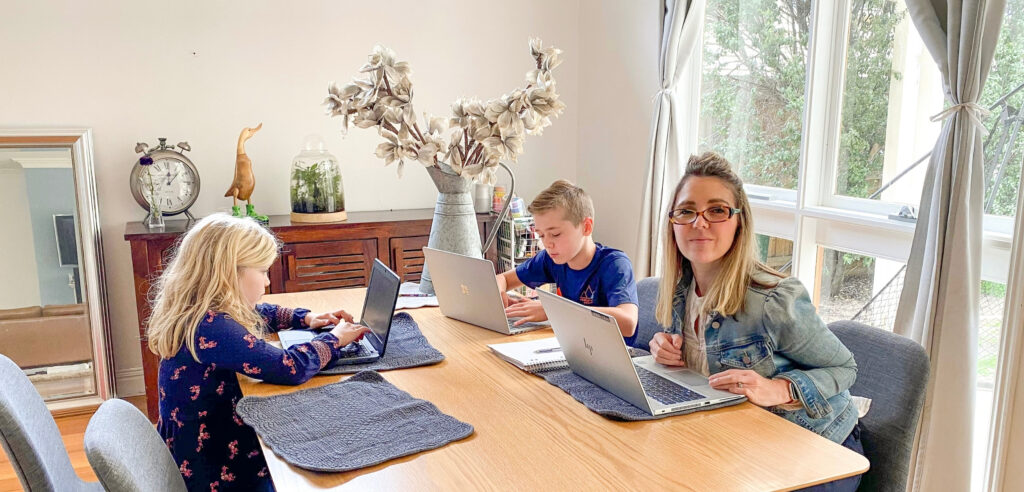“While promoting work life balance has always been important to us, working with an independent organisation like Family Friendly Workplaces to formalise and embed this philosophy is an important next step for our business. Being family friendly is a key element of inclusivity, and our new accreditation sends a clear message to our team members, clients, and potential employees that we support and value all aspects of their life. Employees are our greatest asset, and we’re proud to be investing in RPS people and their families.”
Meegan Sullivan | CEO

With more than 50% of our employees having caring responsibilities and juggling competing work and family responsibilities, RPS is committed to being a family friendly workplace. We’ve made it a priority because it is important to our people, and good for our business.
By creating a family friendly workplace, we see opportunities to not only retain our dedicated employees, but also to attract top talent. We know our people want to work for an employer who understands that professional and personal responsibilities can overlap, and we want to support them in striking the right balance. By creating this environment, we know employees are likely to be more engaged, motivated, and loyal.
We recognise that building a family friendly culture takes time and we are committed to listening to our employees. Our people have told us that proactively respecting their caring responsibilities and embracing a healthy work life balance is important to them. Our commitment to creating a family friendly workplace demonstrates our dedication to inclusivity.
At the onset of COVID-19, our employees needed to quickly adjust to working from home, juggling work and family priorities. Like many organisations, our employees found themselves working at home from kitchen tables, lounge rooms and bedrooms. As schools and childcare facilities closed, many of our employees found themselves juggling the heightened pressure of work and family commitments.
We quickly identified the need to provide additional and revised flexible working arrangements so launched a new flexible working guide. The guide was launched as quickly as possible following a staff survey to understand their needs and preferences. We also consulted with leaders across the business to get buy-in. The new guideline offered employees a variety of flexible opportunities which included reducing and changing hours, flexing start and finishing times, taking extended breaks during the day, purchasing additional leave, and taking career breaks. Employees were informed, manager guides were created and shared to support great outcomes, and the senior leadership team proactively promoted the opportunities through newsletters, presentations, and videos.
Having flexible work discussions has now become the normal way of working. Our workplace culture is now one where managers proactively change meeting times and durations, while managing client commitments and expectations to accommodate family needs and flexibility for employees.
‘Family first’ is now not only how we do business but is promoted by our senior leaders in their regular messages.
While some flexible arrangements were in place previously, the culture of support and accommodation was not what it is today.
The change in culture now sees more than 40% of our employees having formal flexible working arrangements with managers, continuing to discuss and promote the opportunities available to them. One employee shared that her leader has encouraged her team to book a lunch break to focus on their wellbeing. Feedback from the employee was:
“Little things go a long way – like the calendar invite we all got with a reminder to take a lunch break. In this organisation I can see that it is sincerely meant, and such a kind gesture….”
We recently ran an engagement survey which saw our highest engagement score to date.
Providing opportunity for our employees to balance and prioritise family has resulted in not only an engaged workforce but also a productive one. In 2020, approximately 50% of employees ‘met expectations’ and 40% ‘exceeded expectations’.
Another benefit to being a family inclusive organisation is the retention of employees. Of the employees who took parental leave in 2019, 100% returned in 2020.
“While promoting work life balance has always been important to us, working with an independent organisation like Family Friendly Workplaces to formalise and embed this philosophy is an important next step for our business. Being family friendly is a key element of inclusivity, and our new accreditation sends a clear message to our team members, clients, and potential employees that we support and value all aspects of their life. Employees are our greatest asset, and we’re proud to be investing in RPS people and their families.”
Meegan Sullivan | CEO
Parents At Work acknowledge and pay respect to the past, present and future Traditional Custodians and Elders of this nation and the continuation of cultural, spiritual and educational practices of Aboriginal and Torres Strait Islander peoples.
